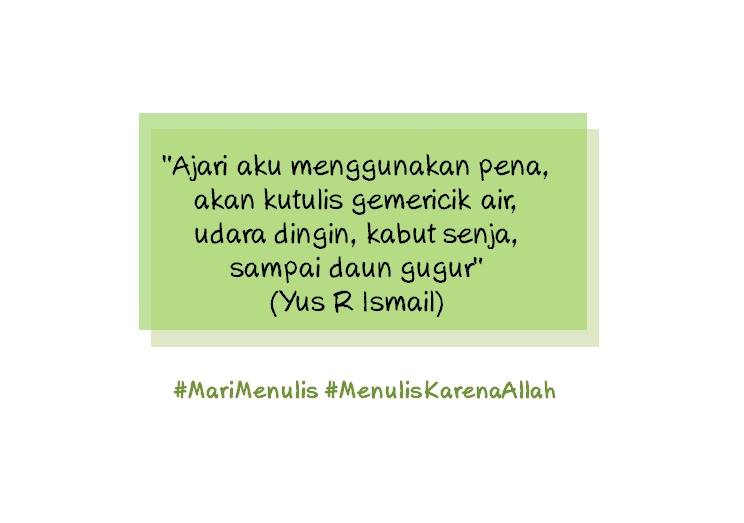Menulis di Blog, Web, atau di Sosial Media?
Isabella Kirei
November 26, 2018
0 Comments
Bismillah.
***
Semangat menulis, semoga diberkahi tulisannya, agar tidak berhenti di sini saja manfaatnya, namun bisa dipetik juga sampai akhirat kelak. Aamiin.
Allahua'lam.
***
PS: Sejujurnya masih sering ngerasa sayang sih kalau tulisan bagus cuma di sosmed, seperti tulisan di ig Gamais, hmm.. coba kalau dimasukin ke web gamais. Atau tulisan bagus yang di story orang. Itu ga kebayang ngetiknya gmn.. mau dipindah kemana juga sulit, ga bs dikopas. Kontennya bagus, kl mau di share hrs screenshoot satu-satu. Hmm.
Semakin aku sering buka sosial media, semakin aku paham... bahwa tidak semua penulis, tempat menulisnya di blog, wattpad, web, medium, dll. Tapi ada juga penulis di sosial media. Mereka yang menulis di status Facebook, mereka yang menulis panjang di Instagram, termasuk di story ig-nya.
Awalnya, aku suka mikir, sayang ga sih, tulisan bagus kaya gitu cuma ditaruh di sosial media. Kan tulisan itu ga terdokumentasi dengan baik. Gak bisa masuk ke pencarian google juga.
Tapi sekarang aku sedikit lebih bisa mengerti. Beda aja sasarannya. Mungkin justru karena di sosial media, pembacanya jadi banyak.
Jadi... kalau dulu liat tulisan kece di sosmed, sering mikir, "coba ditulis di web/blog". Sekarang lebih bisa meluaskan pandangan, tetaplah menulis, dimanapun, baik itu sosmed maupun blog. J
***
Semangat menulis, semoga diberkahi tulisannya, agar tidak berhenti di sini saja manfaatnya, namun bisa dipetik juga sampai akhirat kelak. Aamiin.
Allahua'lam.
***
PS: Sejujurnya masih sering ngerasa sayang sih kalau tulisan bagus cuma di sosmed, seperti tulisan di ig Gamais, hmm.. coba kalau dimasukin ke web gamais. Atau tulisan bagus yang di story orang. Itu ga kebayang ngetiknya gmn.. mau dipindah kemana juga sulit, ga bs dikopas. Kontennya bagus, kl mau di share hrs screenshoot satu-satu. Hmm.






















